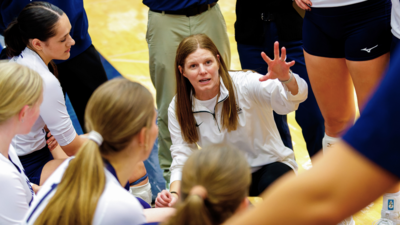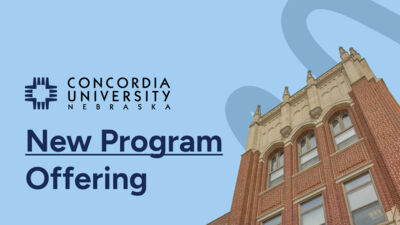The Importance of Reading for School Success

Reading is so much more than a classroom activity—it’s the key to unlocking a world of possibilities for students. When children develop strong reading skills, they gain confidence, build knowledge and open the door to academic success in every subject. Whether it’s deciphering a word problem in math, exploring the themes of a historical event or understanding the instructions for a science experiment, reading is the thread that ties learning together.
For teachers, parents and schools, fostering an early love of reading can make a tremendous difference in a child’s educational journey. And it’s not just about books—reading skills impact how students navigate life, from filling out applications to researching topics of interest.
Reading: A Foundation for All Learning
When children start school, one of the first milestones they achieve is learning to read. During those early years, students develop foundational skills in phonics, vocabulary and comprehension. But the true power of reading becomes evident as they transition from "learning to read" to "reading to learn" around third grade. At this stage, students who are strong readers can absorb information in science, social studies and other subjects more effectively.
Unfortunately, students who struggle with reading often face hurdles in other areas of their education. Reading gaps can lead to frustration, lower academic performance and even a lack of confidence. That’s why early intervention and consistent support are so critical. When students have the tools they need to read fluently and understand what they’re reading, they’re more likely to engage in their studies and thrive.
Why Reading Matters Beyond Academics
Reading doesn’t just prepare students for tests and assignments; it also shapes how they think and interact with the world. When children read, they’re not just decoding words—they’re building cognitive skills that help them analyze, problem-solve and imagine new possibilities.
Think about the mental exercise involved in reading a story: students picture characters and settings, consider motivations and predict what might happen next. This ability to think critically and creatively transfers to all aspects of life, from solving real-world problems to empathizing with others.
Reading also builds a richer vocabulary and stronger communication skills. The more children read, the more they’re exposed to new words and ways of expressing ideas. This not only helps them articulate their thoughts but also boosts their confidence in writing and speaking.
Creating a Love of Reading
Fostering a love of reading is one of the most powerful gifts educators and parents can give to children. It starts with making reading fun and relatable. For younger students, it might mean reading aloud with animated voices or providing books about their favorite animals or superheroes. For older students, connecting them with stories that resonate with their interests—whether it’s sports, fantasy or real-life adventures—can make all the difference.
Another important step is creating an environment where reading feels safe and rewarding. Praise efforts, celebrate progress and give students the freedom to explore books that spark their curiosity. Schools and classrooms can also support reading development by offering diverse materials, from traditional print books to digital resources, audiobooks, and graphic novels.
Finally, teachers play a vital role in helping students develop strategies to tackle more challenging texts. By equipping them with tools to break down difficult passages or unfamiliar vocabulary, educators can empower students to approach reading with confidence and persistence.
How Concordia University, Nebraska Can Help
Educators passionate about making a lasting difference in the lives of their students know how important it is to support children’s reading journeys. That’s where Concordia University, Nebraska’s Master of Education (M.Ed.) in Literacy/Reading/ESL program can help.
At Concordia, you’ll find a distinctive blend of faith-based training and real-world experience. This program equips teachers with the skills and knowledge to help struggling readers thrive while reflecting Christ’s light in their teaching practices. You’ll learn how to use effective, research-backed strategies that meet your students’ unique needs and prepare them for bright futures.
With Concordia’s M.Ed. program, you can customize your degree with emphasis areas and teaching endorsements that align with your personal interests or the needs of your classroom. Options include:
M.Ed. Literacy Emphasis with Reading Specialist Endorsement (33 hours): Prepare to lead literacy initiatives in your school and become a reading specialist, equipped with tools to transform struggling readers into confident learners.
M.Ed. Literacy Emphasis with Reading Specialist & ESL Endorsements (48 hours): Combine two critical areas of expertise—reading and English as a Second Language (ESL)—to address a broader range of student needs.
Reading Specialist Endorsement (30 hours): Focus solely on literacy development and gain specialized skills to support reading intervention programs.
ESL Endorsement (15 hours + 45-hour practicum): Develop strategies to help English Language Learners (ELLs) succeed, bridging language gaps with understanding and care.
The program’s flexible format makes it ideal for working professionals, offering online courses that fit into your schedule. Whether you’re a classroom teacher, reading interventionist, or administrator, Concordia’s M.Ed. in Literacy/Reading/ESL prepares you to lead with confidence, expertise, and compassion.
Empowering Future Generations
Reading isn’t just about academic success—it’s about opening doors to opportunity and helping students see the world in new ways. By fostering a love of reading and providing students with the skills they need to succeed, teachers shape the future in profound ways.
If you’re ready to deepen your impact as an educator and guide students on their reading journeys, consider Concordia University, Nebraska’s M.Ed. program. With its faith-based approach, flexible options and emphasis on real-world teaching strategies, you’ll be empowered to help your students thrive in school and beyond.
Article originally published Nov. 20, 2024. Updated Jan. 21, 2026.
Interested in Concordia's M.Ed. in Literacy/Reading/ESL?


